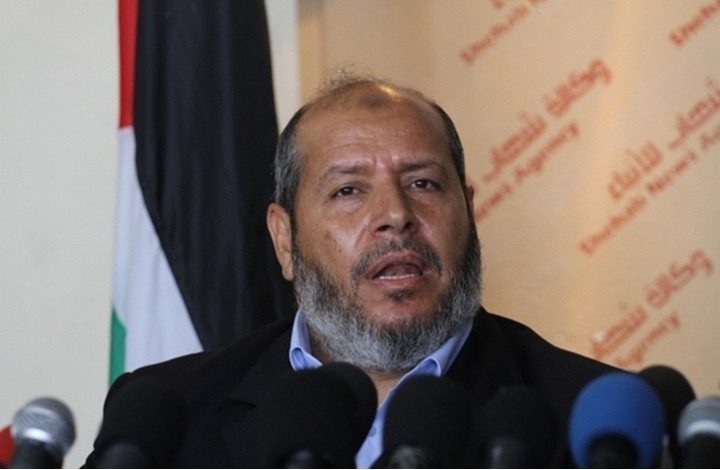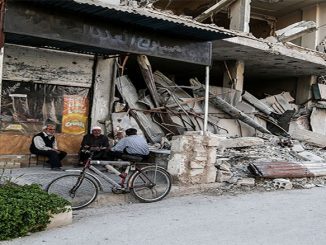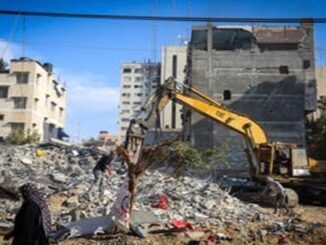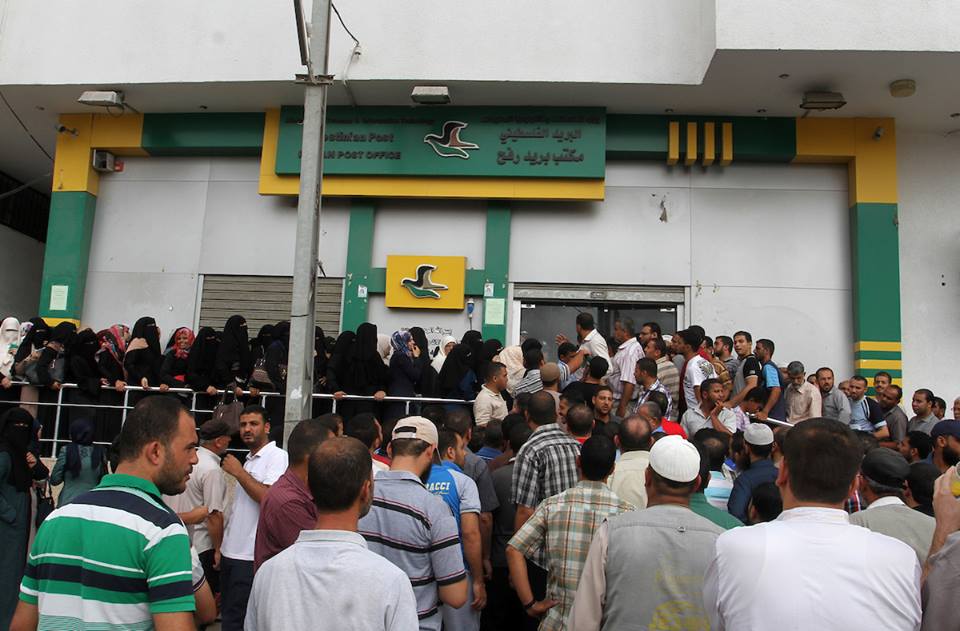
The recent decision by Hamas to take part in upcoming Palestinian municipal polls reflects the movement’s understanding of political realities regarding the decade-long embargo of the Gaza Strip, say experts.
“Many observers had thought that Hamas would not allow — or participate — in local elections,” Mukhaimar Abu Saada, a political science professor at Gaza City’s Al-Azhar University, said, according to Anadolu Agency.
“But it seems Hamas has taken the decision [to take part in the poll] in order to break the siege on Gaza,” Abu Saada told Anadolu Agency.
From his side, Political bureau member of Hamas, Khalil al-Hayya, on Wednesday said Hamas will work hard for the success of local Palestinian polls and will back up joint lists. Speaking during a rally held in Gaza, Hayya urged the Palestinian Authority (PA), national factions, and civil society to combine forces for the success of local elections in the West Bank and Gaza Strip.
He reiterated Hamas’s commitment to the choices of the Palestinian masses and readiness to join the elections despite the tragic situation in the Gaza Strip and the tough blockade imposed on the coastal enclave. Hayya expressed the group’s hope to heal the national rift in the face of the Israeli occupation. “We want a real unity to challenge Israeli policies and criminalize occupation,” said Hayya. “We have to agree on a unified anti-occupation political agenda.
This can only come true if a real partnership is achieved within national associations, mainly the Palestine Liberation Organization (PLO).” “Unless the PLO speaks up for all Palestinians alike, it will remain powerless and self-centered,” he added. The Hamas leader reminded the audience of the destructive upshots of the latest Israeli offensive on Gaza.
“Paradoxical as it might sound, the war on Gaza gave birth to a stormy uprising,” he noted. “On the occasion of the commemoration of the Israeli war on Gaza, we, the Palestinians, call on the nation to defend its heritage and fight the Israeli colonizer. Israel, and no other party, country, or ideology, is our only enemy,” he concluded.
Hamas on Wednesday announced its intention to compete in upcoming polls set for October.
“We call on the Palestinians to participate in the elections,” Hamas spokesman Sami Abu Zuhri told Anadolu Agency.
“The polls will help guarantee that the Palestinian people receive the public services they need,” he said.
The announcement came only a few days after the group — which has governed the blockaded Gaza Strip since 2007 — said it would allow local polls to be held in the territory.
“We affirm the importance of conducting local elections in the [Israeli-occupied] West Bank and Gaza Strip,” Hamas said in a statement issued last Friday.
“We will spare no effort to facilitate the holding of these elections in line with the interests of the Palestinian people,” the group added.
Hamas boycotted the last Palestinian municipal polls in 2012 due to ongoing differences between the Gaza-based group and the West Bank-based Fatah movement of Palestinian President Mahmoud Abbas.
This time around, Hamas plans to nominate candidates who will run on a list of “technocrats” and prominent tribal figures with expertise in municipal affairs, especially the provision of public services.
On Sunday, senior Hamas leader Ismail Haniyeh met with Hanna Naser, the head of the Palestinian Central Elections Commission, to discuss preparations for the upcoming polls.
Following the meeting, Hamas leader Khalil al-Hayah said that the group would “work to facilitate the upcoming local elections in the West Bank and Gaza Strip with a view to ensuring their success”.
Sending message
According to Abu Saada, Hamas’ decision to take part in the polls “is intended to send a message to the international community that it respects democracy and the ballot box”.
Abu Saada also believes that Hamas’ participation in the polls will test the popularity of the group, which has continued to pursue a policy of resistance to Israel and — unlike Abbas’ Fatah movement — eschews negotiations with the Jewish state as unrealistic and pointless.
Hamas believes the emergence of technocratic municipal officials in Gaza may lead the international community to reconsider the ongoing siege of the coastal enclave, which was first put in place following the group’s electoral victory over Fatah in 2006 Palestinian legislative polls.
“Hamas doesn’t want to renew the clash with the international community that followed its victory in the 2006 elections,” Abu Saada said. “For this reason, the group has decided to take part in the polls by backing ‘technocrat’ candidates.”
He went on to describe Hamas’ decision to participate in the polls as a “positive development”.
Since 2007, the Hamas-run Gaza Strip has groaned under a joint Israeli-Egyptian blockade that has deprived its roughly 1.9 million inhabitants of staple commodities, including food, fuel, medicine and building materials.
Despite the devastating impact of the siege on Gaza’s humanitarian situation, the international community — with a few notable exceptions, including Turkey — has quietly condoned the embargo.
In 2014, Hamas and Fatah signed a long-awaited reconciliation agreement that called for the formation of a Palestinian unity government tasked with overseeing Palestinian legislative and presidential polls.
Although the unity government was unveiled two months later, it has yet to take on a governing role in the Hamas-run Gaza Strip, while the relationship between Hamas and Fatah remains beset by a host of outstanding differences that have largely stymied any political progress.



